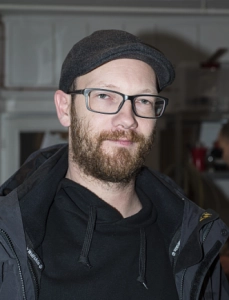Flying in the face of current drinking trends, seven Flanders brewers have successfully revived a traditional, once moribund beer style known as ‘spéciale belge’.
The resurgence of what was once considered Belgium’s national beer marks a turnaround in fortunes for a style that was almost lost during the 1970s.

Spéciale belge was created after the Union of Belgian Brewers challenged members in 1904 to develop a local competitor to the flood of imports of British ale, German lager and Czech pils popular at the time.
“They wanted to create a beer that Belgians could be proud of, one that could compete as a high quality alternative to pilsner,” said Christophe Asselman, one of the founders of the Malt & Mout beer club in Brussels.
A brewery from Châtelineau, located just east of Charleroi, won first prize for its new amber ale launched at the 1905 World Exhibition in Liège. Many breweries from Hainaut, Brabant, Antwerp, and East Flanders began to imitate the style. It became known as spéciale belge during its heyday from the 1920s to 1930s and was considered a national champion.
A typical spéciale belge beer is a top-fermented, easy drinking, clear, amber ale made from caramelised malt, mineral-rich water and aromatic hops. These ingredients and the yeasts used give it a slightly hoppy, malty and fruity taste with an alcohol level of around 5 to 6%.
Spéciale belge succeeded in driving back the foreign imports and helped spawn other types of beer styles in Belgium. But by the late 1970s, the style’s star had faded. Many brewers had mostly slowed or stopped production.
“It became a forgotten, lost beer, associated with old, grey men drinking in bars,” Asselman said.
A return to form
He credits Palm Brewery in Steenhuffel with keeping the tradition alive, leading up to the current revival of interest from drinkers. Despite today’s obsession with the wildly innovative and experimental beers from craft brewers, the spéciale belge style is making a strong comeback.
It is also getting a facelift by being marketed to younger drinkers in modern settings. Brewers have taken notice and are dusting off old recipes and restarting production.
Along with Palm, the breweries De Ryck, Affligem, De Koninck, Contreras, Haacht, Musketeers, and Stella Artois (AB InBev) in Flanders, and Silly in Wallonia, are currently producing spéciale belge beers.
In response to the upsurge in interest, the Flemish Department of Agriculture and Fisheries is in the process of applying to have ‘spéciale belge ale’ designated as a regional product under the European Union’s Protected Geographical Indication (PGI) system.
The EU has already given similar protection under its quality logo system to lambic, gueze, kriek and faro styles of beer, among other drink and food products from Belgium.
The process could, in time, lead to recognition by the EU and protection against imitation or misuse of the name, encouraging other local brewers to continue the tradition.
“We hope that spéciale belge gets the designation,” Asselman said. “It is part of our culture.”
To help promote the style, Asselman held a tasting of nine spéciale belge beers at Malt & Mout in December. He is doing his part, as is Belgian beer guru Jef Van den Steen, whose book Spéciale Belge Ale was published in 2016 and has become the authority on the resurgent style.
The book was timely. In 2016, UNESCO added Belgian beer to its list of Intangible Cultural Heritage of Humanity. The renewed interest in spéciale belge ale demonstrates that in Belgium, tradition and innovative craft beers can live side by side.
More information
Malt & Mout holds monthly beer tastings and beer making workshops.
Spéciale Belge Ale is available in Flemish and French and published by Lannoo.
Flanders’ Agricultural Marketing Board (VLAM) recognises traditional regional products, including specific spéciale belge beers, at streekproduct.be.
By: Ahmed ElAmin
[kkstarratings]







